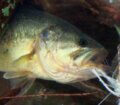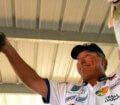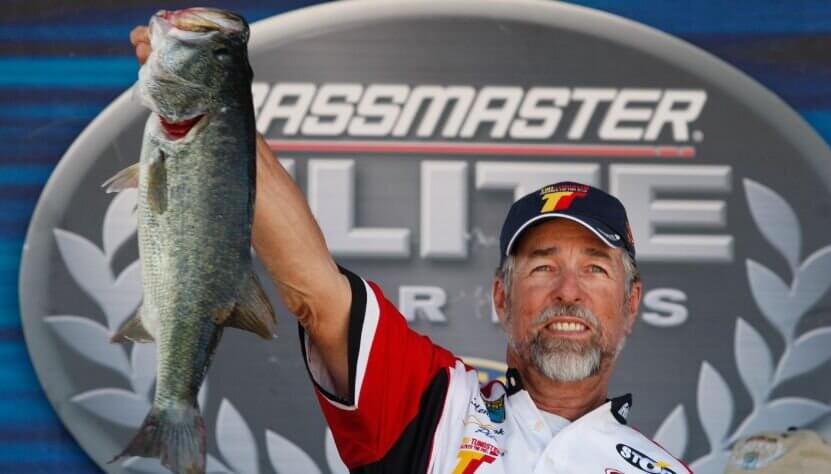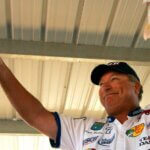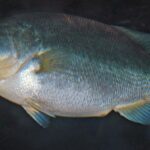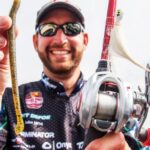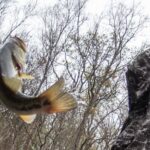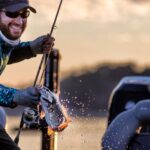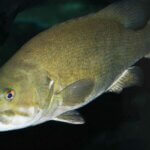Editor’s Note: While deer hunting out of a tree stand, I realized that tree stands were one of the most-productive places on earth to ponder the deep mysteries of life when you’re high above the earth, close to God and free to meditate away from ringing telephones, loud music and people with nothing to do but interrupt your work. There you could think about and try to solve the mystery of how to find the biggest bass in any lake, which is a mystery I’d thought about often. Never before having been able to locate the biggest bass in any lake, I decided that to find that fish, I might be able to use the same strategies a detective would utilize to find a missing person. He would begin by interviewing everyone who knew that person intimately. He would talk to the people who’d had business dealings with him, and he would gather information from the people who’d spent the most time with him. Soon a pattern of his habits and haunts would become evident. Then to locate that missing person, the investigator would look in the areas where the person most likely would be. If through interviewing the ones who knew him best, the detective discovered hideouts that the person had retreated to in the past to dodge danger or elude pursuit, then the investigator reasonably could assume that more than likely he’d use one of these sanctuaries again. I decided the tactic I’d employ to find the biggest bass in any lake would follow these same guidelines and realized that the G.O.A.T.S. (Greatest of All Times) of bass fishing would have the best and most-accurate information. (John E. Phillips’ latest bass book, “Bass Fishing’s G.O.A.T.S. – Greatest of All Times – Know How to Catch Bass,” will be published in summer of 2023).
The Late Ken Cook

Just like a detective might consult human-behavioral scientists to determine what a particular personality type might do under stress and pressure, I talked with expert fisheries scientist, the late Ken Cook of Meers, Oklahoma, a Bassmaster Classic winner, a member of the Bass Fishing Hall of Fame and a top winner of bass tournaments on various bass trails, who always was searching for big bass. I knew Cook could tell me why large bass did what they did and base that information on sound, scientific principles.
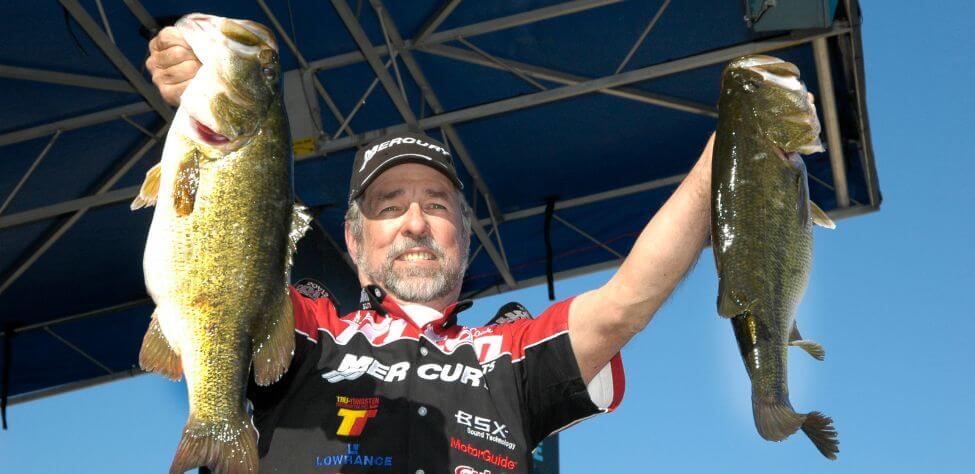
“Big bass like their solitude,” Cook reported. “By the time a bass reaches its trophy potential, more than likely, it has had some negative experience with anglers. Therefore, the fish has learned how to avoid anglers. Big bass prefer to hold where there’s some type of overhead cover, which either can be heavy structure or deep water. A big bass becomes very territorially minded if it finds a piece of heavy cover that it can stay in without being harassed – often spending much of the day in that cover while relatively inactive. The only way to catch a large bass like this is to put a bait close to the bass that’s easy for it to take. Even though the fish is a large bass, it’s still an opportunistic predator that will attack any bait that passes close by.
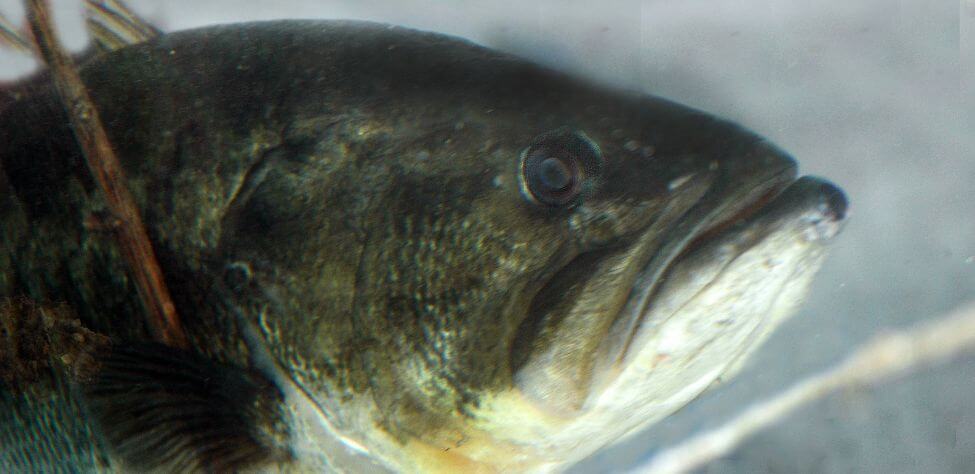
“If you don’t locate big bass in heavy cover, generally the fish have moved to deep water. Bass that are deep are very hard to catch, since an angler can’t place his lure as accurately in deep water when he can’t see the structure where the fish is holding. Accurate lure presentation can trigger an instinctive bite from a large bass that may not want to feed. But most anglers aren’t as proficient with lures in deep water as they are in shallow water.”
Tomorrow: G.O.A.T.S. Bass Fish Unusual Spots
Expert Guidebooks on Bass Fishing: Best Sellers

If you want to become the best you can be, find someone who’s already become the best at what you want to do and follow his or her instructions. This is what I’ve done in my new book, Bass Pros’ Season by Season Tactics.
In this book, I’ve chosen some of the best bass fishermen to give you advice on how to find and catch bass during each period of a bass fish’s life, including professionals like Kevin VanDam, Denny Brauer, David Fritts, Rick Clunn, Larry Nixon, George Cochran, Mark Davis, Woo Daves, Gary Klein, Davy Hite, Michael Iaconelli, Skeet Reese, Mark Rose, and Shaw Grigsby.
My hope is that this book will help you find and catch more bass at every time of the year and each day you’re on the water. The men included in this book are some of the best mentors I know of for successful bass fishing anywhere in the nation.
VERSIONS: AUDIBLE & PRINT
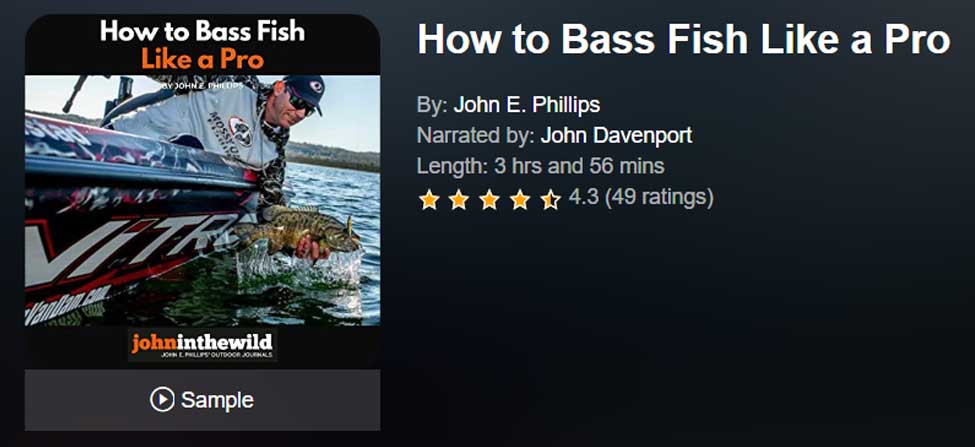
How to Bass Fish Like a Pro
If you could sit down and interview some of the best pro bass fishermen in the world, what would you want them to tell you to help you improve your bass fishing skills?
In this book, How to Bass Fish Like a Pro, Kevin VanDam explains how he catches bass consistently, and how he fishes all 12 months of the year. In the bonus chapters, he will tell you how to fish for hot-weather bass.
Denny Brauer will tell you the ways he hates to fish, how he picks the best fishing lures for different water and weather conditions, and will give you his best fishing tips for hot weather. In Brauer’s bonus chapters, he’ll teach you when to flip a jig, a tube, or a creature bait and tell you his three tips for how to be a better fisherman.
Mark Davis, in Chapter 3 of the book, explains his five secrets to becoming a better bass fisherman, how to turn your bass fishing around to the positive side, and how to catch hot-weather bass. In the bonus chapter, you’ll get six different interviews with Davis, where he tells you: three tips for becoming a better bass fisherman; his three favorite bass lures; and how to keep a big bass on the line and get it to the boat.
James Niggemeyer tells you how to become a bass pro. He also tells you how to catch bass when the weather sizzles. In Niggemeyer’s bonus chapter, he explains how to move from being a bass-club fisherman up to being a pro.
Mark Rose will explain his five favorite go-to bass lures, and how to catch bass in the middle of the summer.
In this book, you’ll hear from top-performing pro fishermen about how they catch big bass consistently, and what they do to win millions of dollars as professional bass fishermen.
VERSIONS: AUDIBLE, KINDLE & PRINT
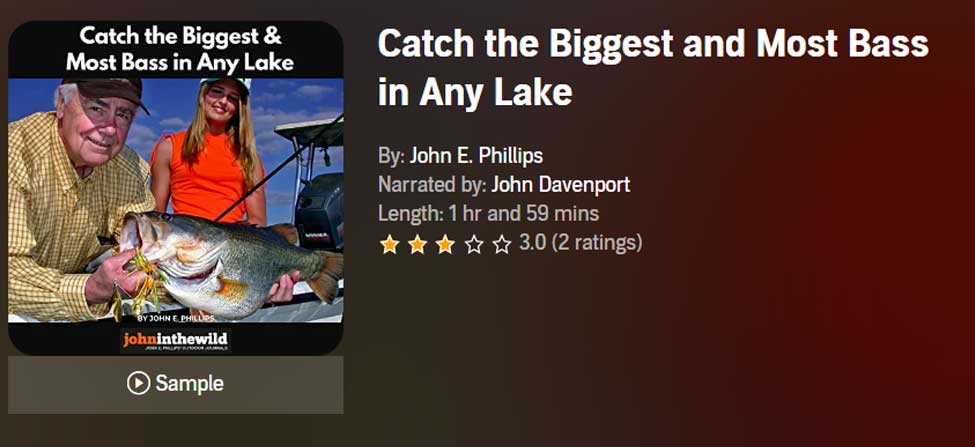
Catch the Biggest and Most Bass in Any Lake
If you were having open-heart surgery at the hospital, you’d want the best doctor with the most experience and the latest equipment and techniques that money could buy to do your operation. You’d study these doctors’ credentials to learn who was the best.
This is the same type of research that author John E. Phillips has done with the best bass fishermen in the nation to solve the problem of how to find and catch the biggest and the most bass in any body of water that he fishes.
This is the same type of research that author John E. Phillips has done with the best bass fishermen in the nation to solve the problem of how to find and catch the biggest and the most bass in any body of water that he fishes.
In this book, you’ll hear about the techniques, tips, baits, lures, and tackle that 18 of the nation’s best professional fishermen use to support their families by winning bass tournaments and catching the most and the biggest bass they can in every tournament they fish.
Most of these anglers are Bassmaster Classic winners, Megabucks winners, Angler-of-the-Year and FLW Tour winners – like Rick Clunn, Kevin VanDam, George Cochran, Mark Davis, Paul Elias, Skeet Reese, Larry Nixon, Hank Parker, Ken Cook, Denny Brauer, Alton Jones, and Jay Yelas.
Also, every serious bass fisherman should know Timmy Horton, Mark Rose, Randy Dearman, Harold Allen, Mike Wurm, and Shaw Grigsby, men whose tactics you’ll find in this book. To learn how to fish for bass and change your bass-fishing trips from fishing trips to catching trips, this book is a must-have.
VERSIONS: AUDIBLE, KINDLE & PRINT
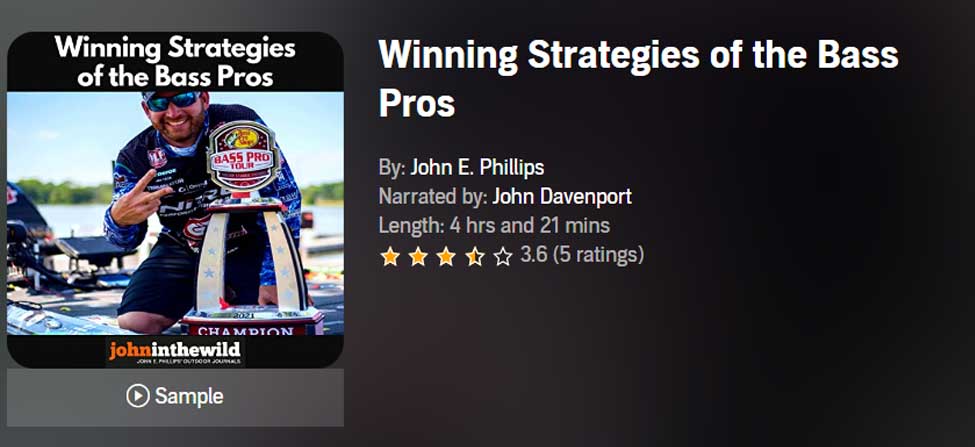
Winning Strategies of the Bass Pros
I learned many years ago if you want to be the best you can be, then you need to learn from the best – particularly when you want to be the best bass fisherman possible. That’s why I’ve written Winning Strategies of the Bass Pros about 11 top bassers.
If you’re wondering at what age you can start learning about bass fishing, you’ll see in the first two chapters about two young men who have come up through the ranks of collegiate bass tournaments – Jordan Lee, who won the Bassmaster Classic in 2017, and Dustin Connell, who won $100,000 in a B.A.S.S. Elite Series tournament in Mississippi in 2017. Top-name pros on both the B.A.S.S. circuit and the FLW circuit are in this book, including Kevin VanDam, Jay Yelas, George Cochran, Rick Clunn, Larry Nixon, Woo Daves, Randy Howell, Scott Canterbury, and Gary Klein.
VERSIONS: AUDIBLE, KINDLE & PRINT
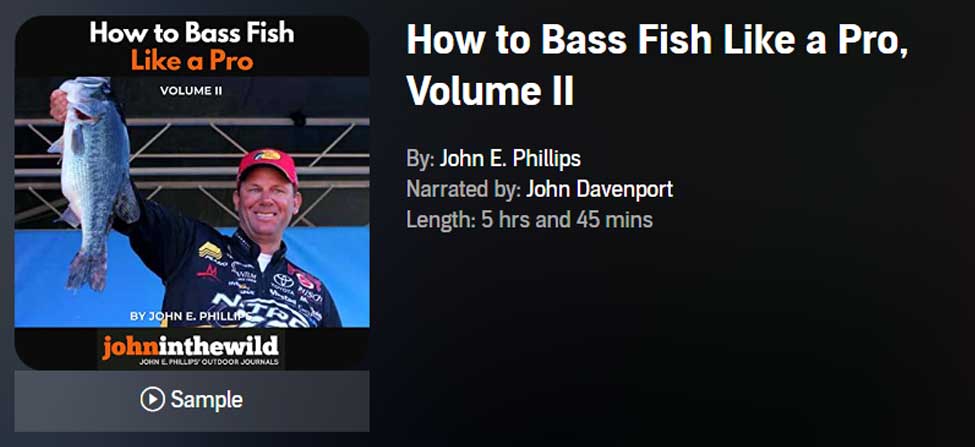
In How to Bass Fish Like a Pro, Volume II, you’ll learn tips and tactics from 21+ Bassmaster Classic winners, two Major League Fishing champions, and 20+ Bassmaster Anglers of the Year about some of the dramatic changes in bass fishing, like:
Depth Finders: You need the latest and greatest depth finders available, since they’re the brains of a bass boat with maps, GPS, side scanning, down scanning, and forward scanning features that enable you to see underwater structures and fish 100-feet away with a 360-degree view. Today’s competitive bass anglers may have four or five depth finders located on the consoles and the bows of their boats.
Other Changes in Equipment: Power fishing for bass using heavy line and rods, big baits, and bait-casting reels that resemble winches have given way to finesse fishing and new techniques like fishing the Ned Rig, the Neko Rig, the Chicken Rig, and the Tokyo Rig on spinning tackle and line as small as 6-10 pounds.
The Growth in Youth and College Competitions for Bass: A young person can begin competition fishing as early as the second grade and continue throughout high school. After that, if the competitor qualifies, he/she may win a scholarship to fish on a college team that eventually may lead them to a professional bass-fishing career.
Changes in the Ways Anglers Bass Fish: Many of the most-consistent winners never pick-up their rods to fish during pre-fishing. Instead, they’ll idle across the water, dropping waypoints from their electronics in places where they’ve identified schools of bass holding. These contestants will have at least 50-250 locations, where they’ve pinpointed schools of bass before a tournament starts.
VERSIONS: AUDIBLE, KINDLE & PRINT

